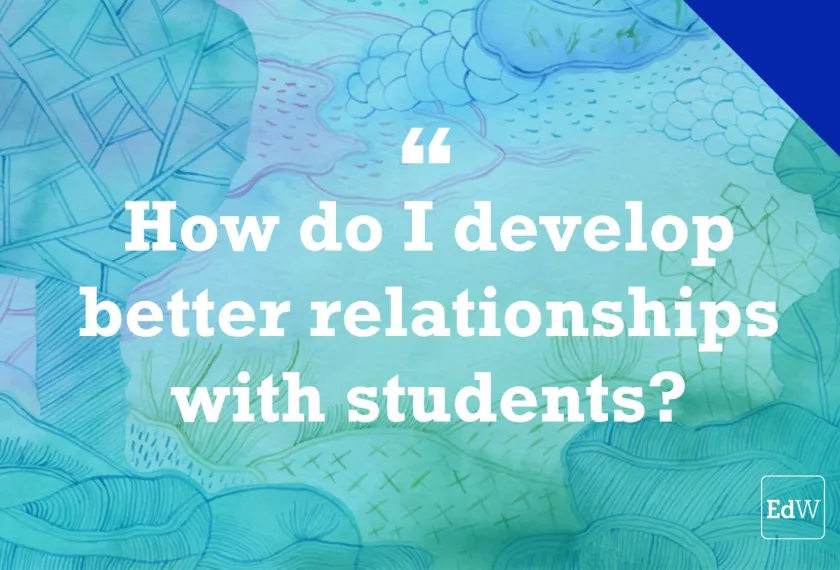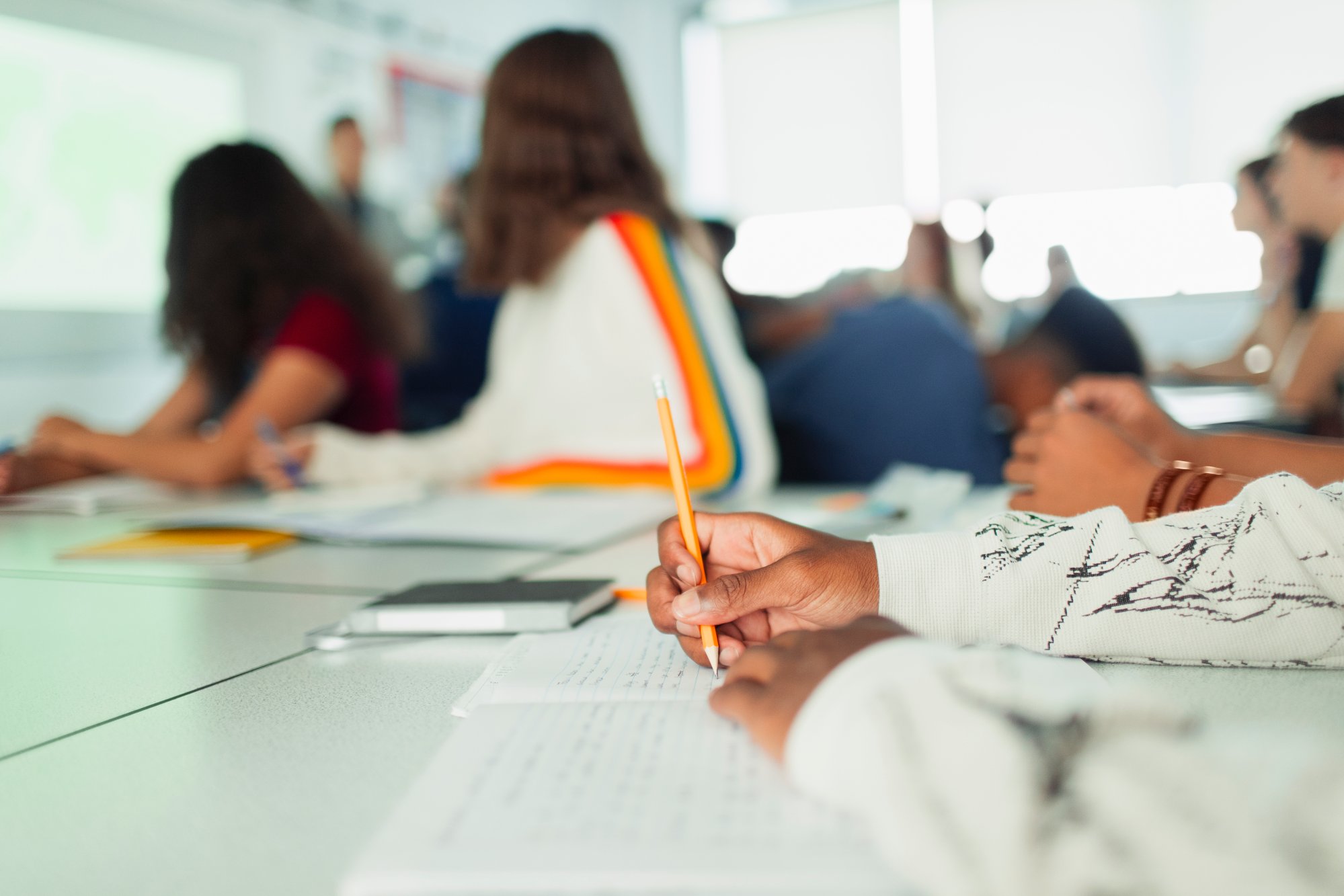Media Type
+

LATEST
RESOURCES
In our research and travels, we look for resources that support teaching and learning experiences that are student-centered, engagement-based, fueled by relationships, and grounded in a deep commitment to equity and social justice. Feel free to explore the whole library or click on one of our indicators of Radically Reimagined Relationships to narrow your search. We hope our Resource Library is helpful to you in your work!
RRR Indicator
+
Media Type
+
Audience
+
January 19, 2023
Anxiety in the Classroom: What it looks like, and why it's often mistaken for something else
Rachel Ehmke
Child Mind Institute
How can parents and educators help kids develop the competence and confidence they need to tackle and solve their own problems? This article describes the many different faces of anxiety in the classroom.
January 1, 2023
How Strong Are Your Relationships?
Jancee Dunn
New York Times
The first step in the 7-Day Happiness Challenge is to assess your relationships. These 13 questions were designed in partnership with Dr. Robert Waldinger, professor of psychiatry at Harvard Medical School, to help you take stock of the range and strength of your many social ties.
December 21, 2022
Gratitude Practices at School That Work (and Why Some Don’t)
Giacomo Bono
EducationWeek
A good teacher knows that establishing strong relationships with students is key not only to helping them succeed but also to supporting their own love for the job. One way to develop a rapport with students is to introduce gratitude practices at school.
November 28, 2022
Pandemic Learning Loss
Sarah Mervosh
New York Times
Months into the current school year, most American students are still trying to make up for what they lost during the pandemic. This fall, we saw some of the clearest evidence yet of the extent to which the pandemic — and the school closures that came with it — hurt children’s education.
October 17, 2022
Addressing the Link Between Anxiety, Depression, and Student Attendance
Sarah D. Sparks
EducationWeek
Renshaw and his colleagues have spent the last five years finding ways to help middle and high school students in special education work through the anxiety and depression that gets in the way of schoolwork. In the process, they stemmed a significant source of chronic absenteeism in the district: refusal to go to school.
September 13, 2022
The teacher shortage is testing America’s schools
Chris Remington
WAMU American University Radio
The National Education Association estimates there’s a shortage of roughly 300,000 teachers and staff across the U.S. The teacher shortage is particularly pronounced in rural school districts, where the need for special education teachers and STEM teachers is high.
June 29, 2022
Teacher Flexibility and the New Normal
Sheila Mulder
in all things
One of the best pieces of advice I can give to new teachers is the need to be flexible. A flexible disposition has always been essential in an effective teacher. Teachers adjust, shift, and change practices and ideas to do what is best for students. Enter the month of March 2020, and flexibility mounted to a new level, where teachers were asked to pivot and transform traditional education beyond anyone’s imagination.
April 4, 2022
Home Literacy Initiatives of Middle School Families During the 2020 Quarantine Period: Transformation in Education?
Elizabeth S. Stewart, Jeasik Cho, Mellinee Lesley, & Julie Smit
National Association of Professors of Middle Level Education
The coronavirus pandemic changed everything almost overnight for students and their families. The purpose of this qualitative case study, thus, was to investigate the views of families about the sudden change in education for their middle school children, particularly literacy practices, during the pandemic.
January 1, 2021
Districts Advancing Racial Equity - DARE Tool
Maria E. Hyler, Desiree Carver-Thomas, Marjorie Wechsler, & Larkin Willis
Learning Policy Institute
"The DARE tool brings together—in a uniquely broad and practical way—what
is known about district actions that can support racial equity. The tool captures
research-informed, high-leverage aspects of schooling that leaders must address in
order to create systems that build on the strengths of and respond to the needs of
students of color."
October 9, 2020
Importance of Providing Meaningful Student Feedback
University of South Carolina
Feedback is any response regarding a student’s performance or behavior. It can be verbal, written or gestural. The purpose of feedback in the assessment and learning process is to improve a student’s performance - not put a damper on it. It is essential that the process of providing feedback is a positive, or at least a neutral, learning experience for the student.
August 5, 2020
Parent-Teacher Communication: Strategies for Effective Parent Inclusion & Engagement
Studies continue to show that parent involvement is one important factor in helping students engage in their learning, and parent-teacher communication is a key aspect of promoting parent involvement.
April 7, 2020
The Stubborn Myth of “Learning Styles”
William Furey
Education Next
Reasonable people may disagree about whether teachers should have to pass licensing tests of instructional knowledge before getting a job in a classroom. But it’s hard to dispute the idea that, if there is going to be such a test, then the questions should be based on the best evidence we have about how children learn. Right?
January 26, 2020
Why Focusing On Adult Learning Builds A School Culture Where Students Thrive
Katrina Schwartz
Mindshift
In order to work at their highest levels, all members of a school community have to be learning and growing. The adult culture is a critical element. "To get to that place, adults need to be part of a community of colleagues who support their growth. They need to feel safe to be vulnerable, to admit failings or mistakes and to trust that their colleagues are giving feedback in order to help them improve."
November 14, 2019
A Framework for Student Goal-Setting
Maurice J. Elias
Edutopia
Devoting regular time in professional learning communities and faculty meetings to discussing goal-achieving strategies can provide a power morale boost in schools. In particular, discussing long-term plans can stimulate broad faculty collaboration to shape the school. And sharing with students that you’re doing the same thing you ask them to do makes it more likely that they’ll value the activity.





















